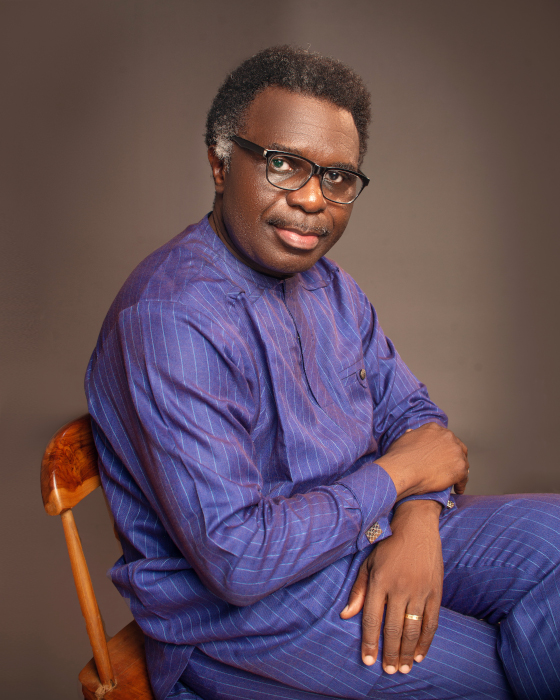Africa
Why Nigerians Fear Talking Positively About Their Nation -By Leonard Karshima Shilgba
Another layer is hypocrisy. We are quick to lambast “public corruption,” yet rarely confront our private corruption: examination malpractice, nepotism, tax evasion, inflated contracts, violation of traffic rules, or the silent bribery of everyday interactions. To commend those in public life who have acted with integrity would expose our double standards, for it would force us to reckon with our own moral compromises. Nigerians are often stingy with deserved commendation, preferring instead the “safety” of unrelenting condemnation.

There is a curious tragedy that runs deep in the Nigerian psyche: the fear, even shame, of speaking well about one’s own country. It is a paradox that in a land blessed with immense human capital, cultural creativity, entrepreneurial resilience, and a natural resource base that many nations envy, Nigerians recoil from affirming these blessings. Instead, they repeat, without interrogation, tired clichés about “corruption” and “failure,” often borrowed from outdated headlines.
Entrenched Narratives and Mental Laziness:
One explanation lies in our inurement to entrenched narratives. For decades, the word “corruption” has been the most convenient description of Nigeria, and it has become the default lens through which many interpret every action of state and society. It does not matter that positive reforms or development are taking place in sectors like digital banking, creative arts, agriculture, transportation, non-oil export, manufacturing, education, information and technology; the elite and ordinary citizens alike cling to yesterday’s headlines. We do not ask for evidence before believing the worst, but we demand unassailable proof before believing the good. And even when proof is provided, we eye it with suspicion, as though good news were a conspiracy.
The Comfort of Cynicism:
Why this attitude? Part of it is psychological convenience. It is easier to wallow in cynicism than to accept the responsibility that comes with hope. To affirm Nigeria’s progress is to be compelled to contribute to its continuation. To declare that reforms are working is to implicate oneself in sustaining them. Thus, cynicism functions as an escape—an excuse for passivity. By condemning the nation wholesale, one absolves oneself from the duty of incremental personal change.
Private Corruption and the Refusal to Commend:
Another layer is hypocrisy. We are quick to lambast “public corruption,” yet rarely confront our private corruption: examination malpractice, nepotism, tax evasion, inflated contracts, violation of traffic rules, or the silent bribery of everyday interactions. To commend those in public life who have acted with integrity would expose our double standards, for it would force us to reckon with our own moral compromises. Nigerians are often stingy with deserved commendation, preferring instead the “safety” of unrelenting condemnation.
The Romance of the Foreign:
There is also the curious phenomenon of glorifying the foreign while demonizing the familiar. Nigerians exaggerate the virtues of societies they admire—whether in Europe, North America, or Asia—while downplaying the struggles, corruption, and inequities that plague those same societies. In the desperate bid to validate one’s dream of “japa” (emigration), Nigerians paint their country in the darkest shades, dispatching horror stories abroad as passports to sympathy. Yet in so doing, they unwittingly sabotage their own identity and demarket the very nation that could have been their pride.
Fear of Betrayal and the Suspicion of Good News:
But perhaps the deepest reason is fear: the fear of being labeled naïve, complicit, or compromised. In Nigeria’s polarized atmosphere, to speak positively about one’s country is to risk being accused of sycophancy, of “eating from the system,” seeking public appointment by the government, or of being blind to reality. This fear silences honest optimism and makes many Nigerians prefer the safety of despair. Good news is treated as betrayal, while bad news is received as patriotic truth-telling.
The Cost of Negativity
Yet this negativity has consequences. Nations are not built by those who despise them. The persistent denigration of Nigeria has robbed her citizens of confidence, robbed her youth of hope, and robbed her image abroad of dignity. No society can advance where its own citizens are its chief demarketers. By refusing to talk positively about Nigeria, we cripple our own potential.
A Call to Courage
To break this cycle requires courage—the courage to believe in our own story. Talking positively about Nigeria does not mean denying her challenges; it means refusing to let those challenges be the sole narrative. It means affirming progress where it exists, and giving commendation where it is due. It means balancing criticism with celebration, exposing corruption while rewarding integrity, and holding leaders accountable without damning the entire nation.
Nigerians must learn that it is not betrayal to speak well of one’s country. On the contrary, it is betrayal to remain silent when truth and progress deserve to be heard. A nation that cannot believe in itself cannot expect the world to believe in it either.
© Shilgba

























